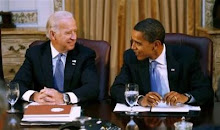Last updated: October 2, 2008
Who said that Christians ought to be brainless? The pastors in this CNN video seem to think so although the Bible encourages Christians to THINK for themselves (1 John 2:27).
According to a friend of mine, one thing all antagonists have in common is a desire to control. They use criticism to control others. They would like us be unsure of ourselves, to doubt our convictions and to surrender our boundaries to their intimidating tactics. After all, their manipulations are primarily directed to cause others to believe as they do. They would intimidate others to believe the world is not safe or orderly unless they are in charge. These pastors are intimidators: the threatening sense of danger they convey is unmistakable. This CNN video virtually showcases pathological—intimidation.
What’s the best response for dealing with intimidators? 1) name the game, 2) Consider whether the accusations are right and correct them if necessary, and 3) to not be knocked "off balance". Each time you deal with the Intimidators' fear-provoking tactics, don’t cave in!
Dealing with antagonists teach us many things about us. It teaches us about our strengths, our weaknesses, our leadership styles and, among other things, the relative strength and character of our faith. When antagonists come our way, we learn just how easy it is to loose the focus of faith. The way antagonists play on our feelings is simply a heightened recognition that all human relationships have the potential to divert us from an unshakeable faith in God’s will and power for our lives.
Who said that Christians ought to be brainless? The pastors in this CNN video seem to think so although the Bible encourages Christians to THINK for themselves (1 John 2:27).
According to a friend of mine, one thing all antagonists have in common is a desire to control. They use criticism to control others. They would like us be unsure of ourselves, to doubt our convictions and to surrender our boundaries to their intimidating tactics. After all, their manipulations are primarily directed to cause others to believe as they do. They would intimidate others to believe the world is not safe or orderly unless they are in charge. These pastors are intimidators: the threatening sense of danger they convey is unmistakable. This CNN video virtually showcases pathological—intimidation.
What’s the best response for dealing with intimidators? 1) name the game, 2) Consider whether the accusations are right and correct them if necessary, and 3) to not be knocked "off balance". Each time you deal with the Intimidators' fear-provoking tactics, don’t cave in!
Dealing with antagonists teach us many things about us. It teaches us about our strengths, our weaknesses, our leadership styles and, among other things, the relative strength and character of our faith. When antagonists come our way, we learn just how easy it is to loose the focus of faith. The way antagonists play on our feelings is simply a heightened recognition that all human relationships have the potential to divert us from an unshakeable faith in God’s will and power for our lives.
http://www.cnn.com/video/?/


























No comments:
Post a Comment